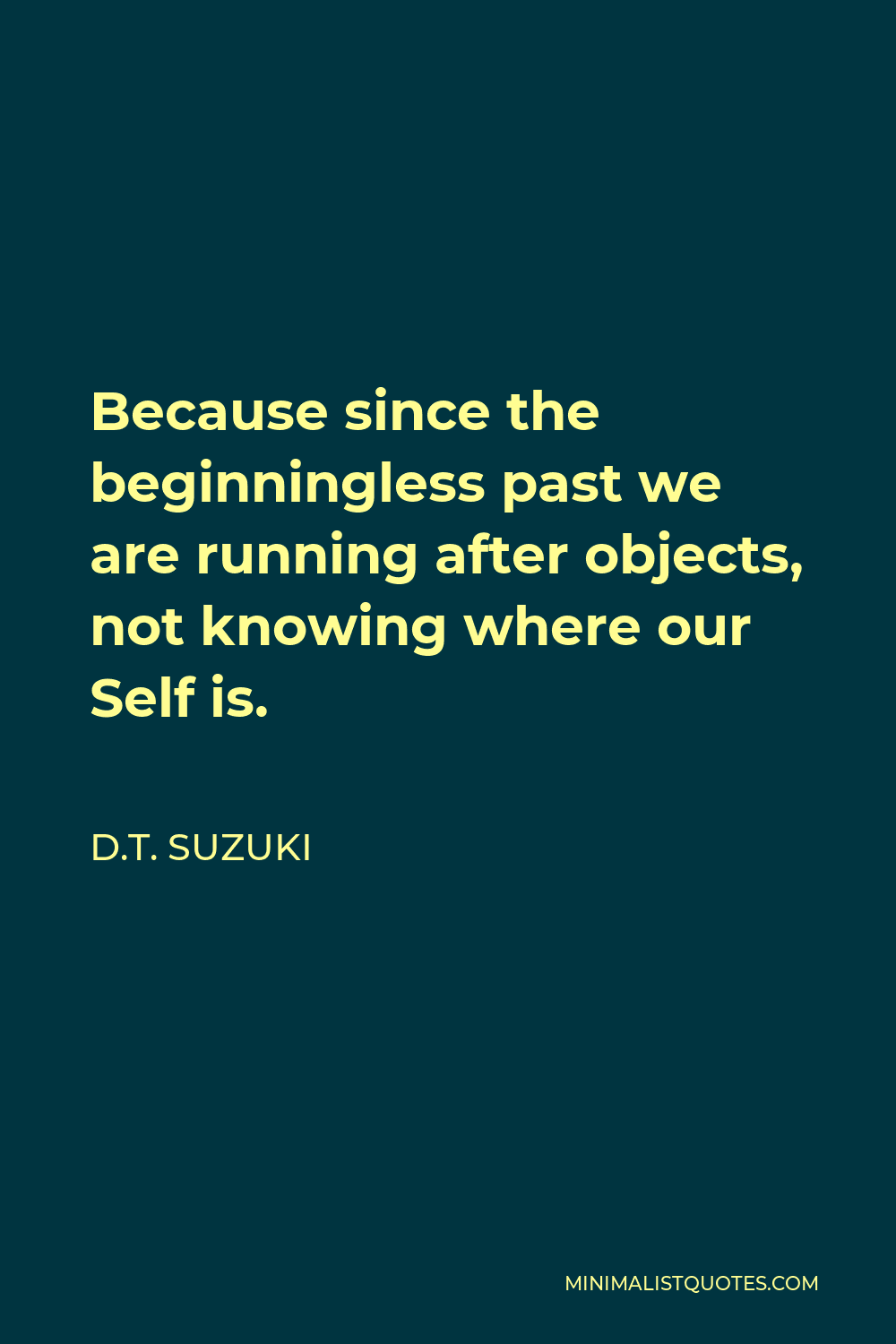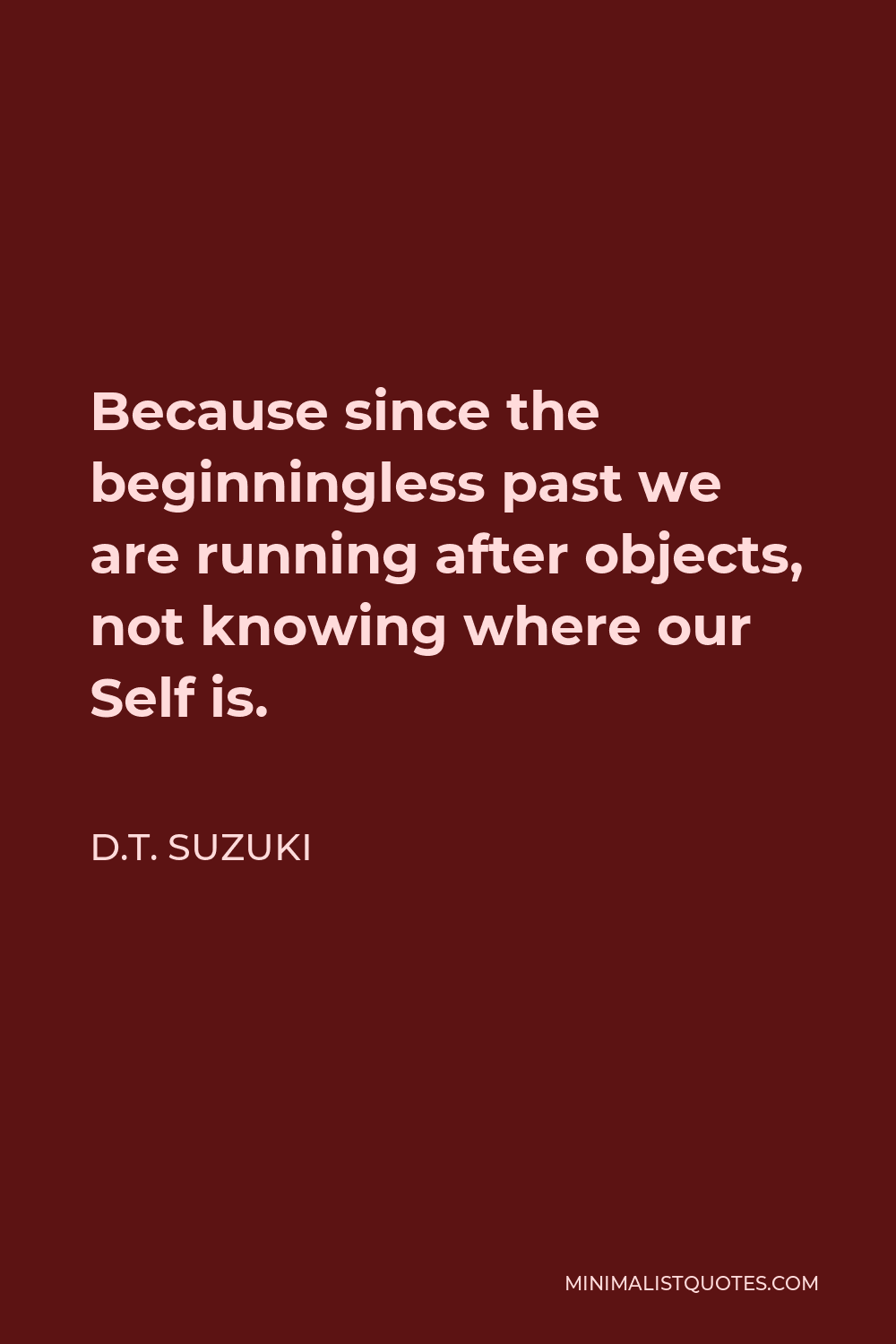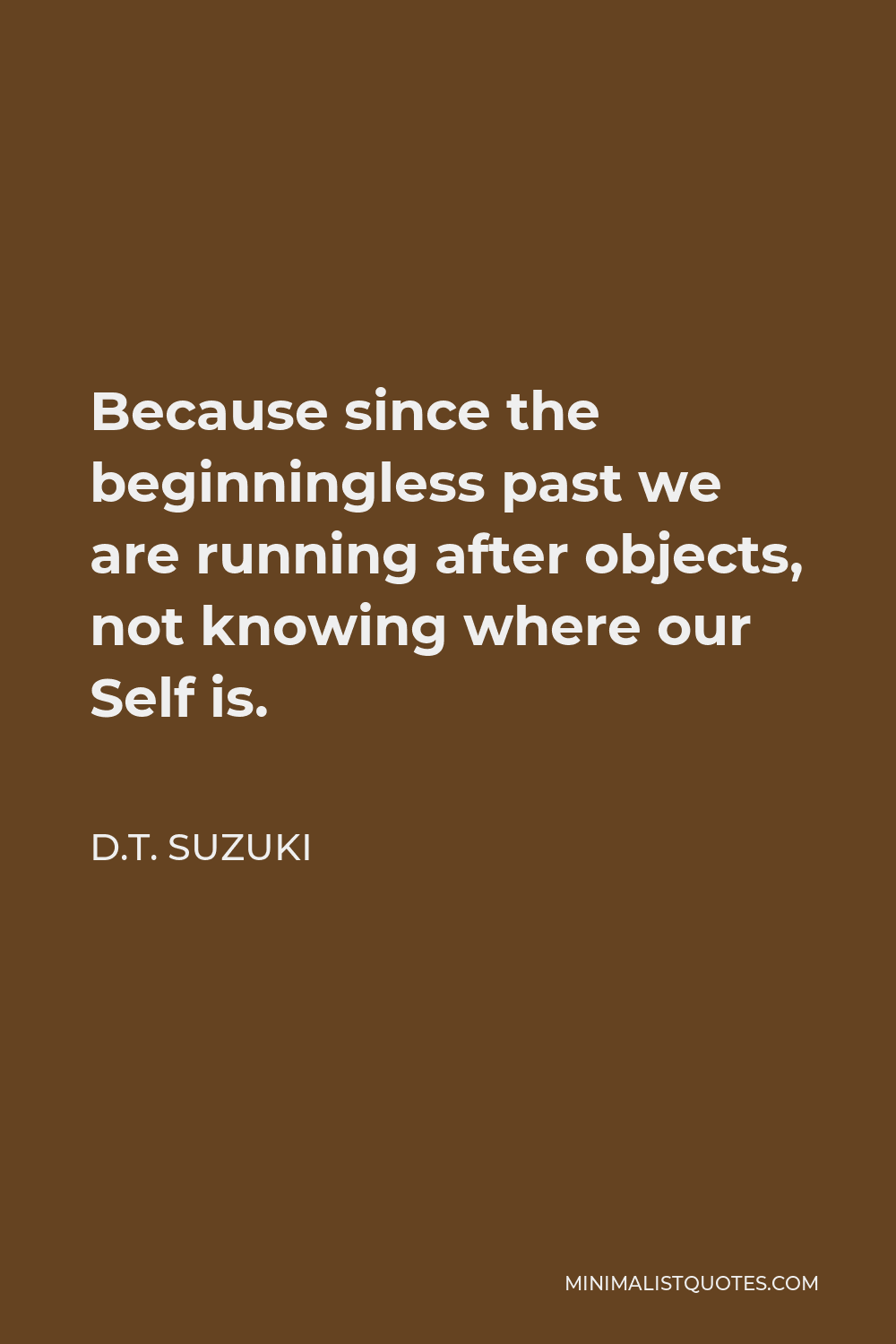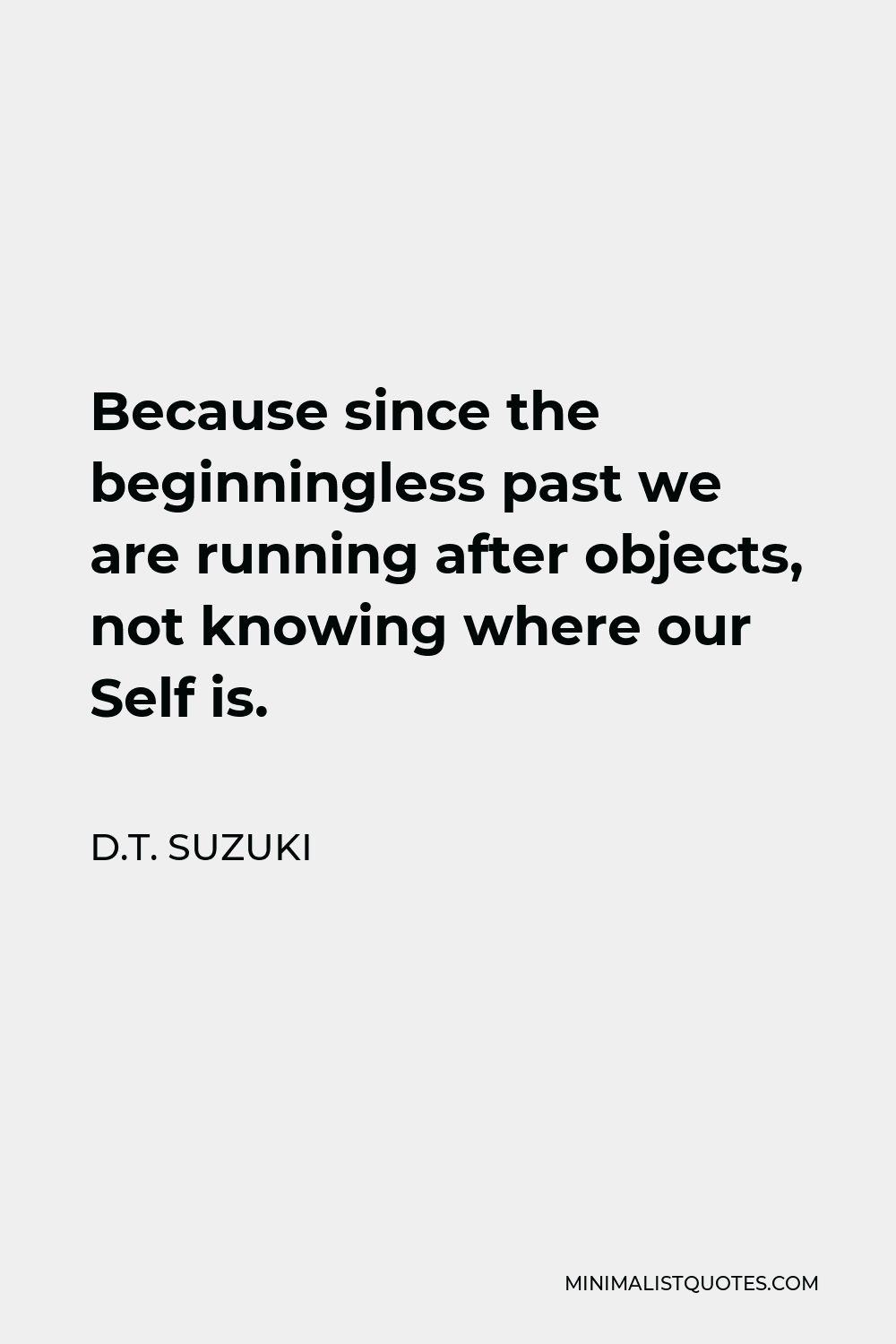To point at the moon a finger is needed, but woe to those who take the finger for the moon.
D.T. SUZUKIBecause since the beginningless past we are running after objects, not knowing where our Self is.
More D.T. Suzuki Quotes
-





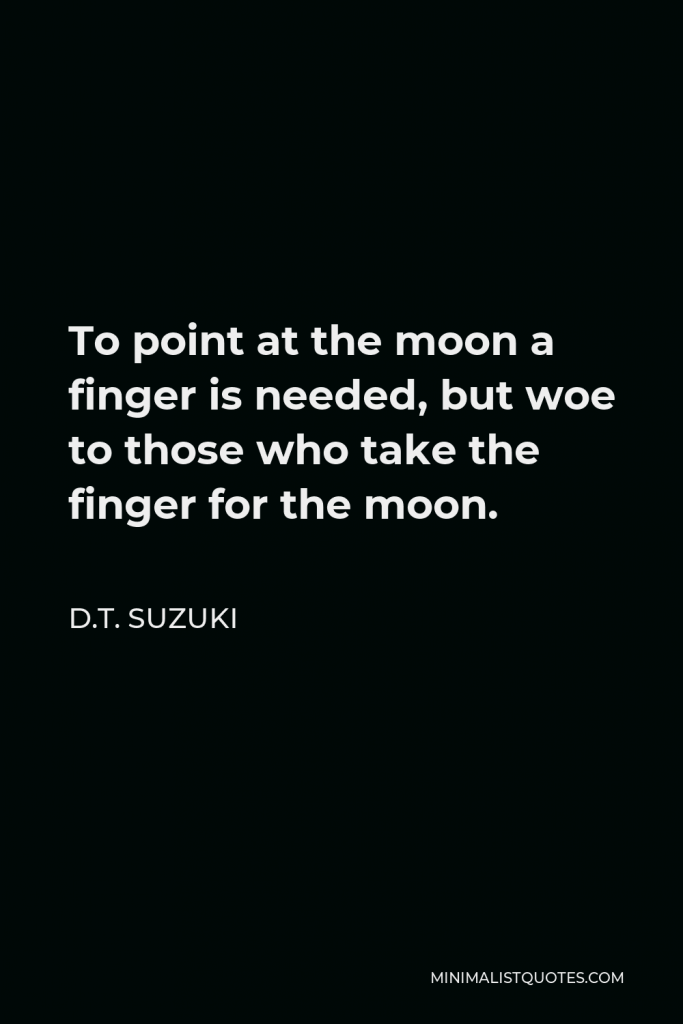

-





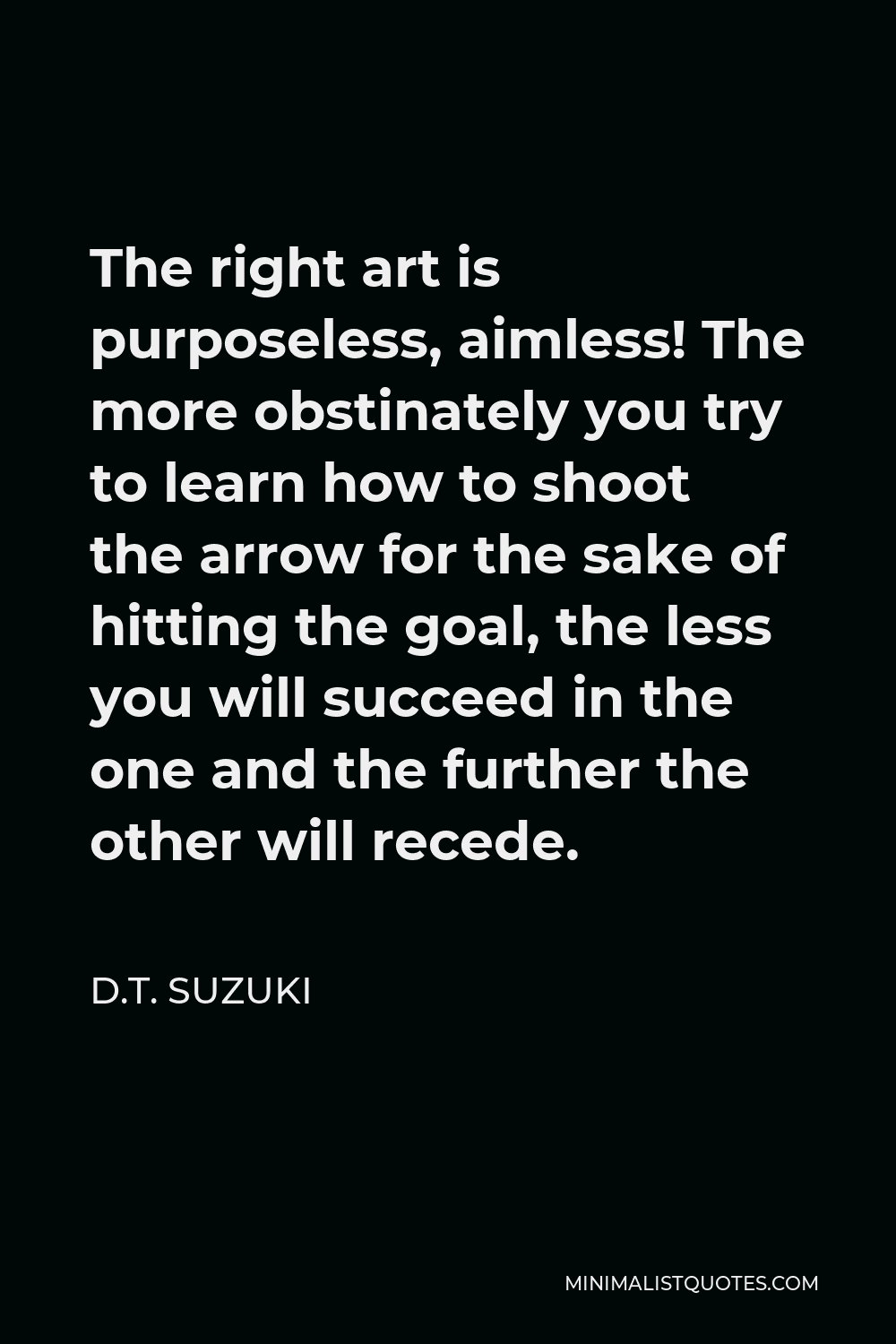
The right art is purposeless, aimless! The more obstinately you try to learn how to shoot the arrow for the sake of hitting the goal, the less you will succeed in the one and the further the other will recede.
D.T. SUZUKI -





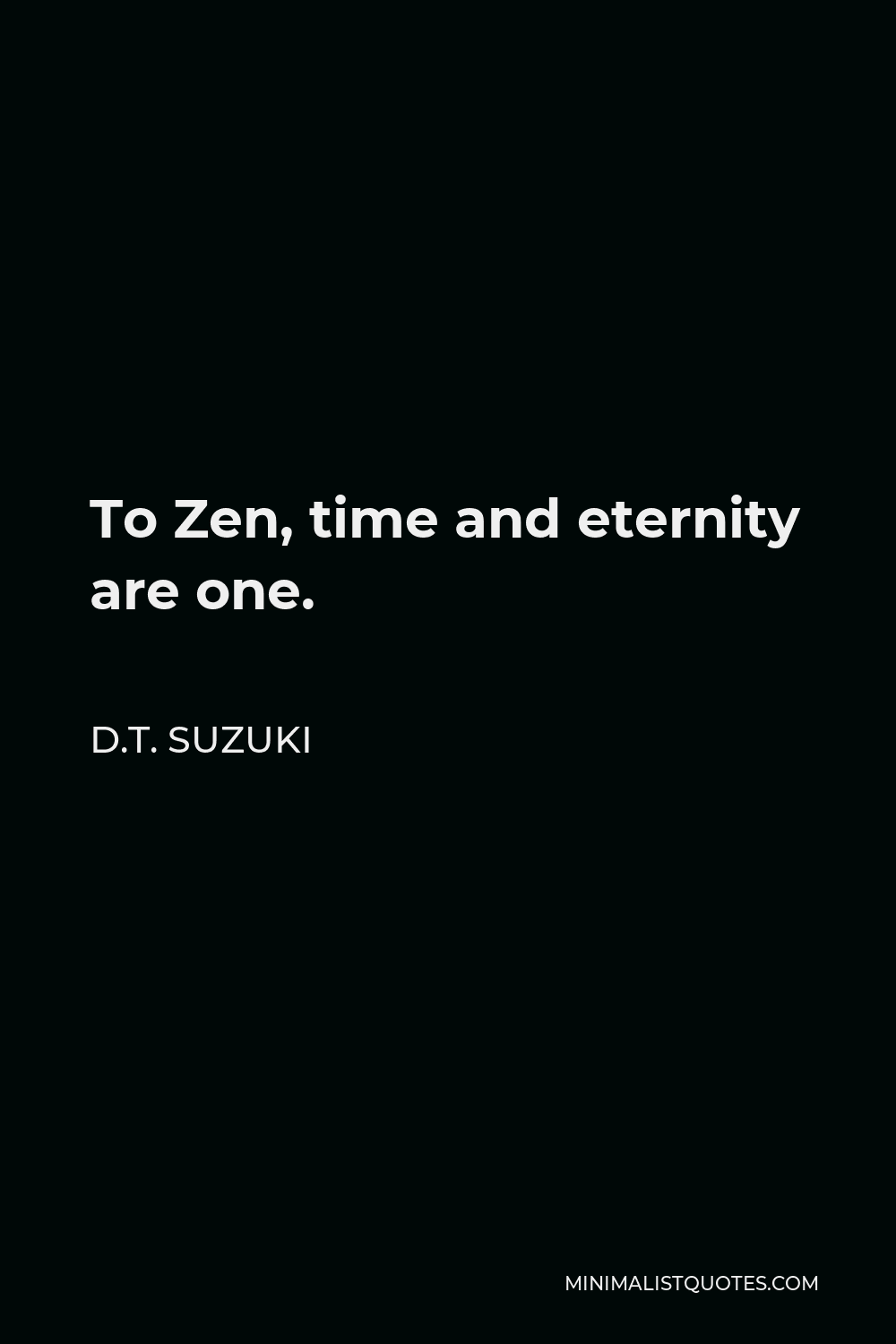
To Zen, time and eternity are one.
D.T. SUZUKI -





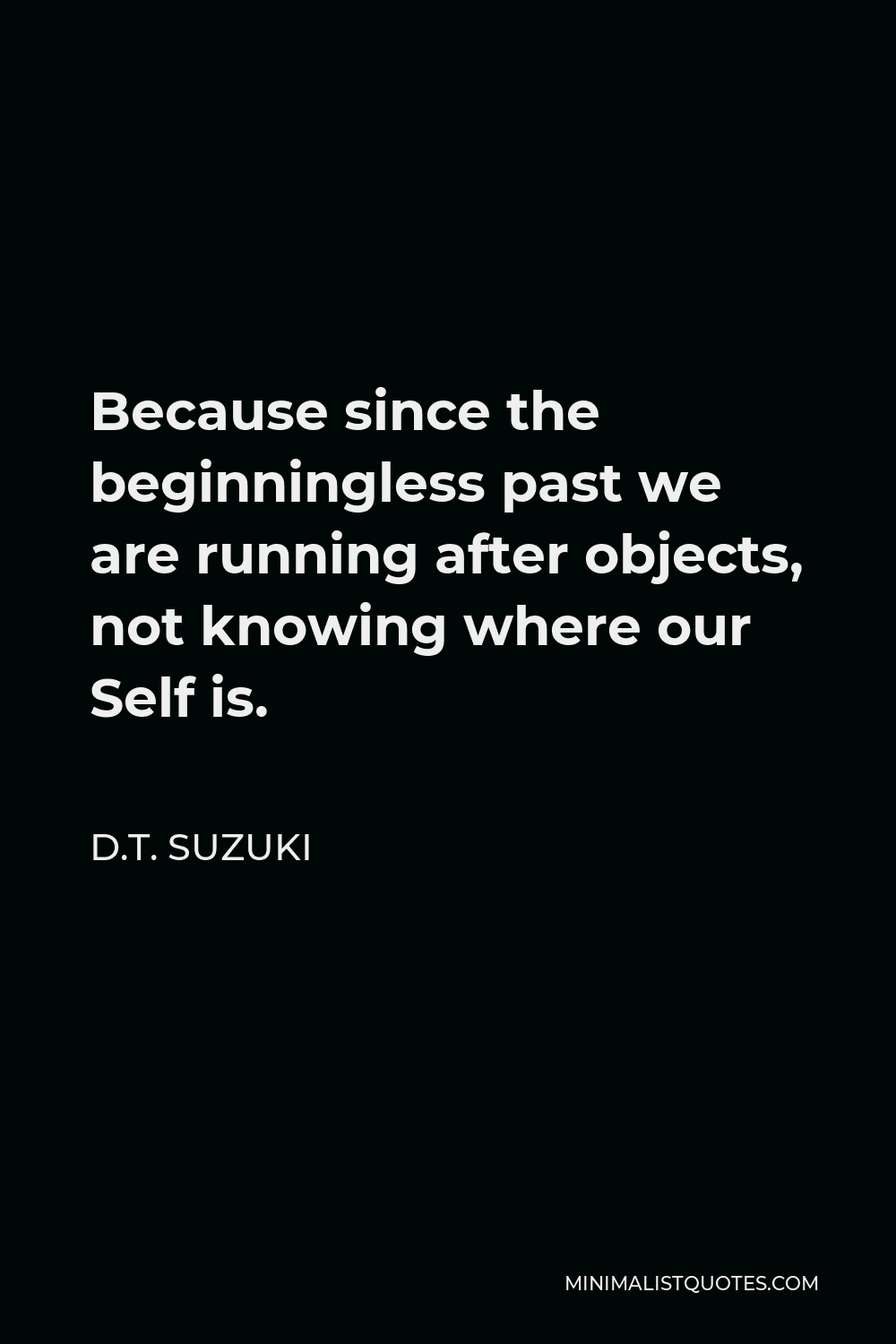
Because since the beginningless past we are running after objects, not knowing where our Self is.
D.T. SUZUKI -






That’s why I love philosophy: no one wins.
D.T. SUZUKI -





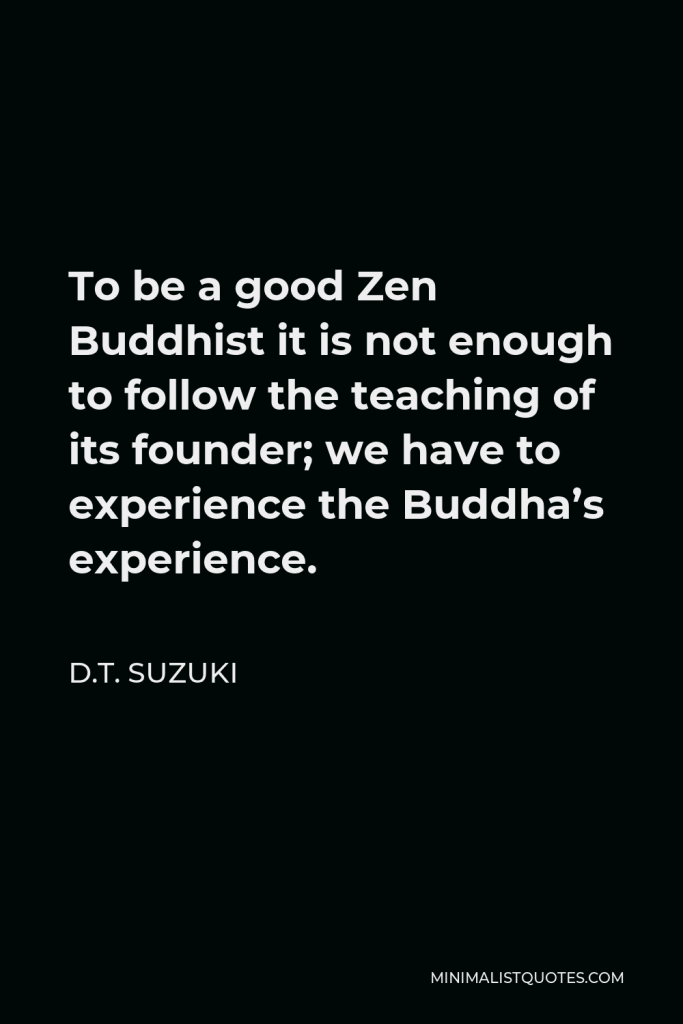

To be a good Zen Buddhist it is not enough to follow the teaching of its founder; we have to experience the Buddha’s experience.
D.T. SUZUKI -





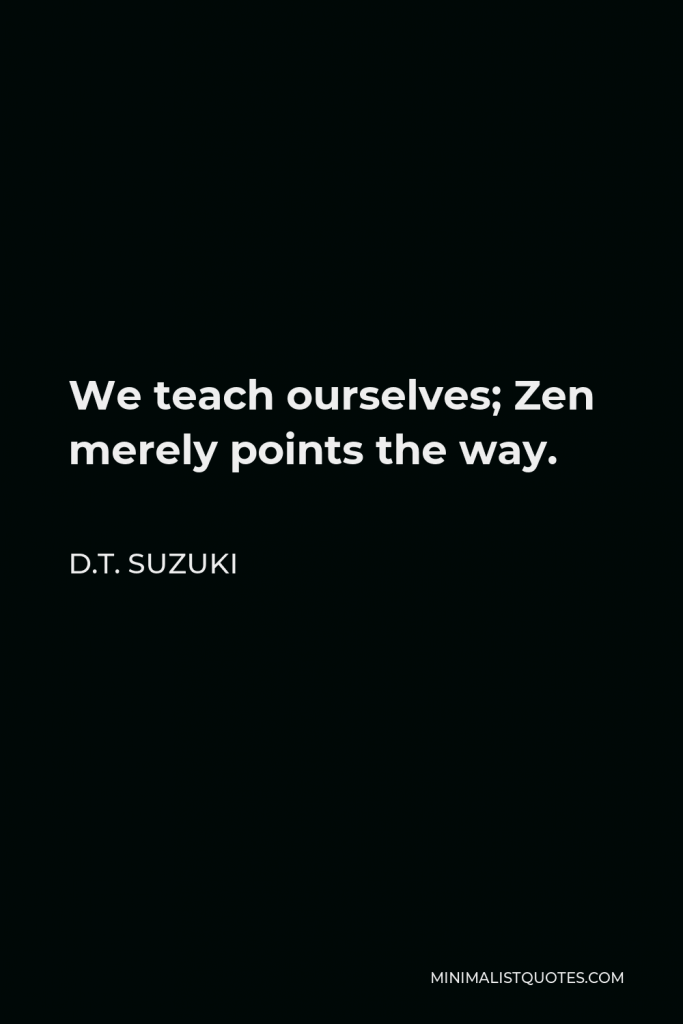

We teach ourselves; Zen merely points the way.
D.T. SUZUKI -






Dhyana is retaining one’s tranquil state of mind in any circumstance, unfavorable as well as favorable, and not being disturbed or frustrated even when adverse conditions present themselves one after another.
D.T. SUZUKI -





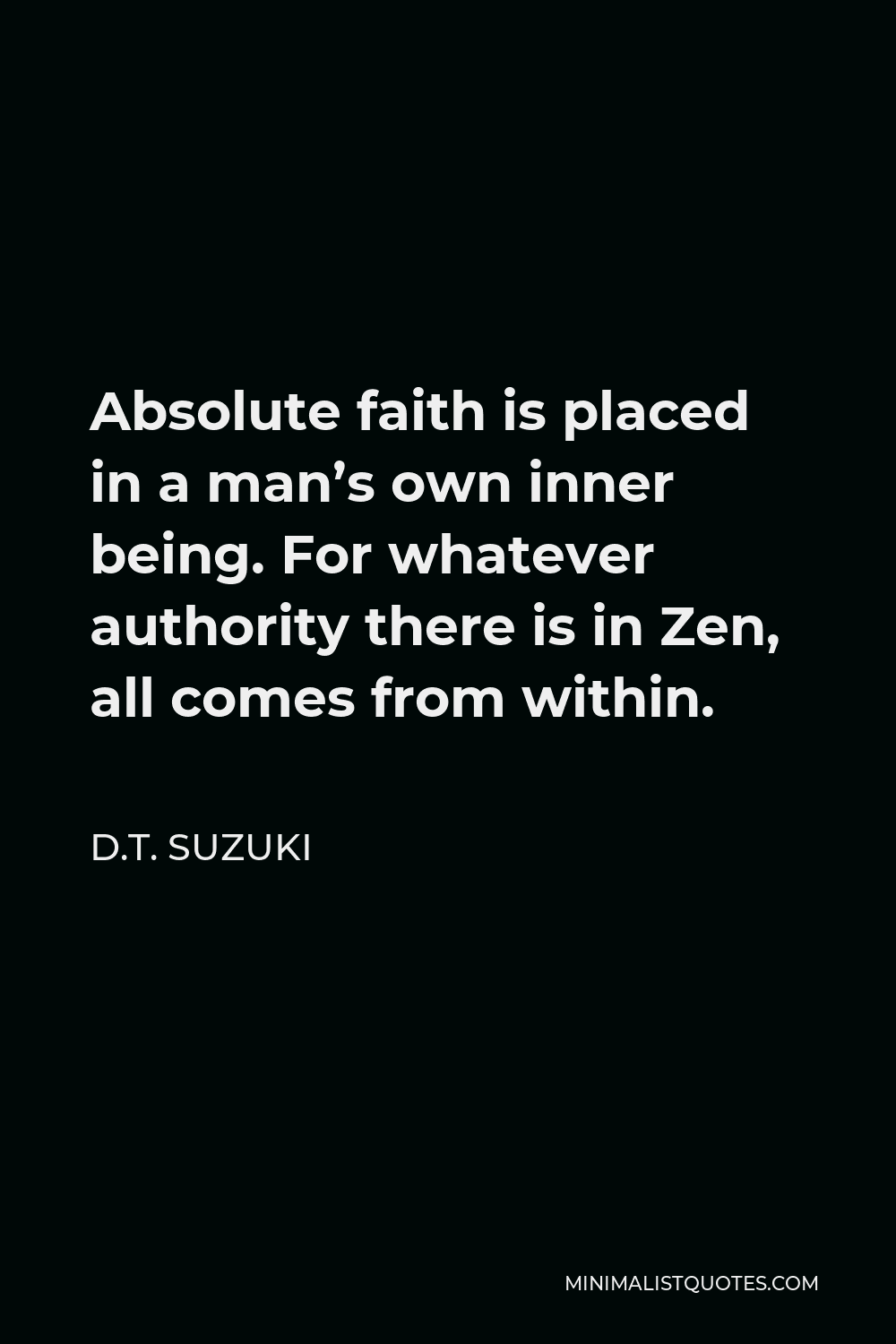
Absolute faith is placed in a man’s own inner being. For whatever authority there is in Zen, all comes from within.
D.T. SUZUKI -





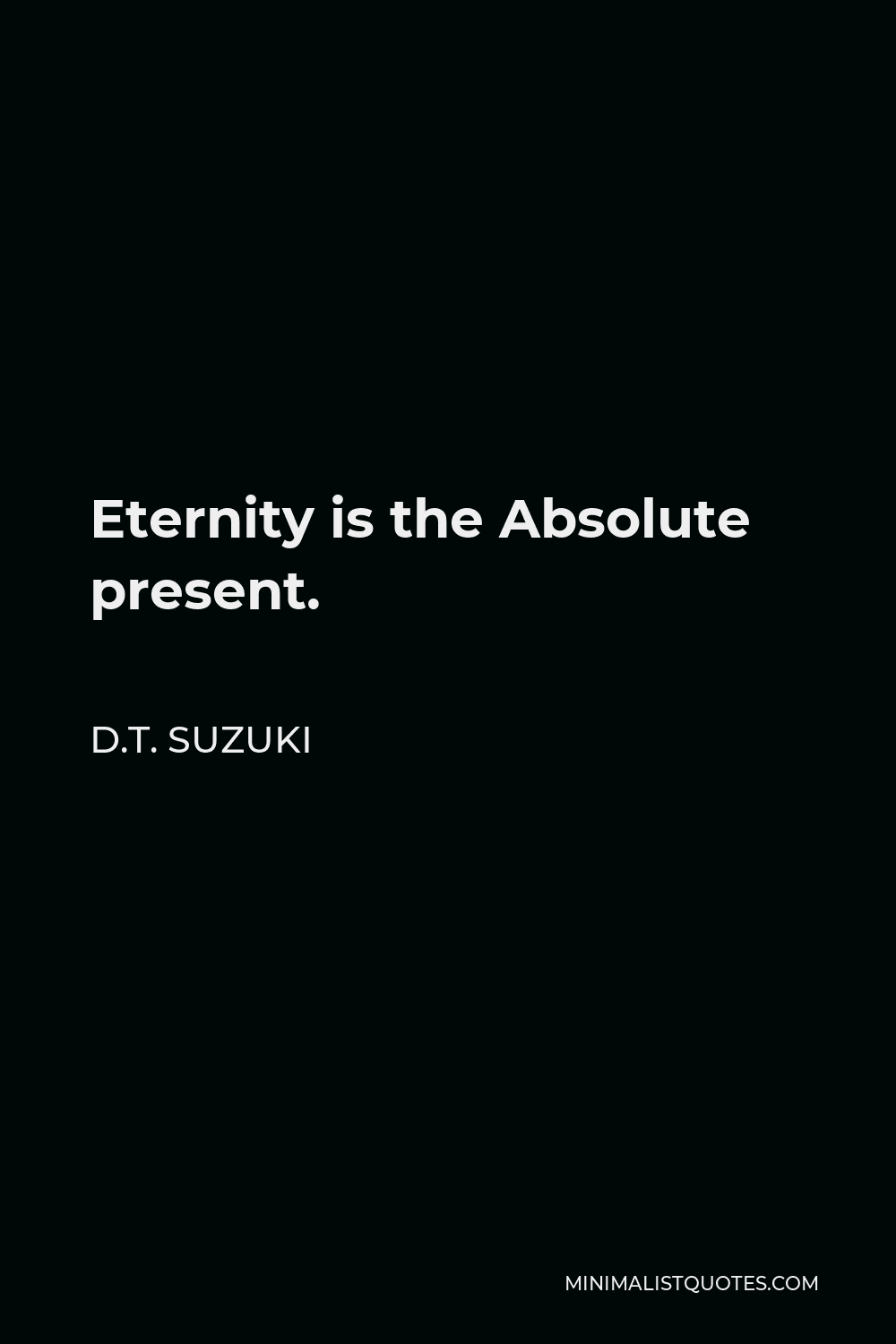
Eternity is the Absolute present.
D.T. SUZUKI -







When the identity is realized, I as swordsman see no opponent confronting me and threatening to strike me.
D.T. SUZUKI -





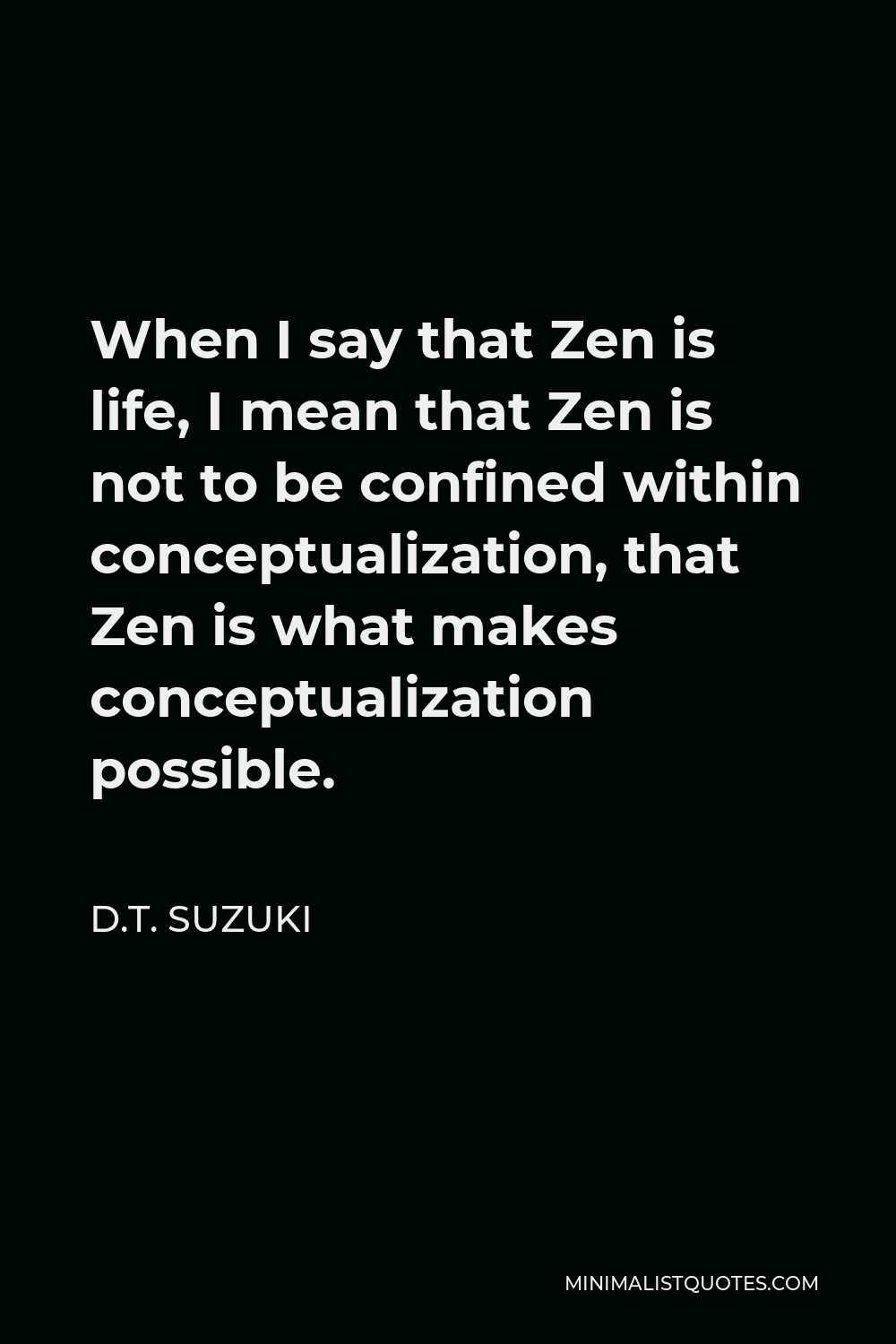
When I say that Zen is life, I mean that Zen is not to be confined within conceptualization, that Zen is what makes conceptualization possible.
D.T. SUZUKI -





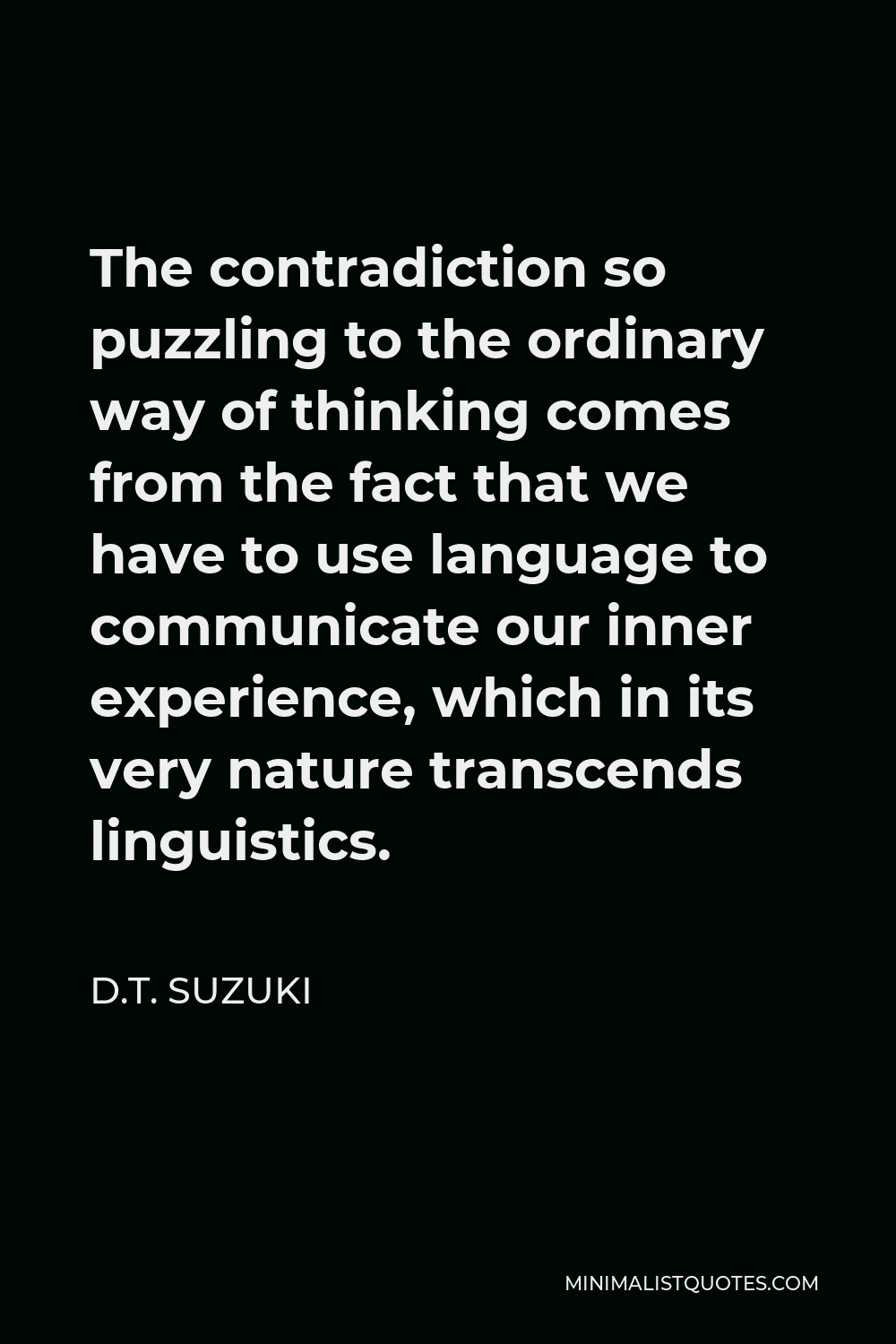
The contradiction so puzzling to the ordinary way of thinking comes from the fact that we have to use language to communicate our inner experience, which in its very nature transcends linguistics.
D.T. SUZUKI -





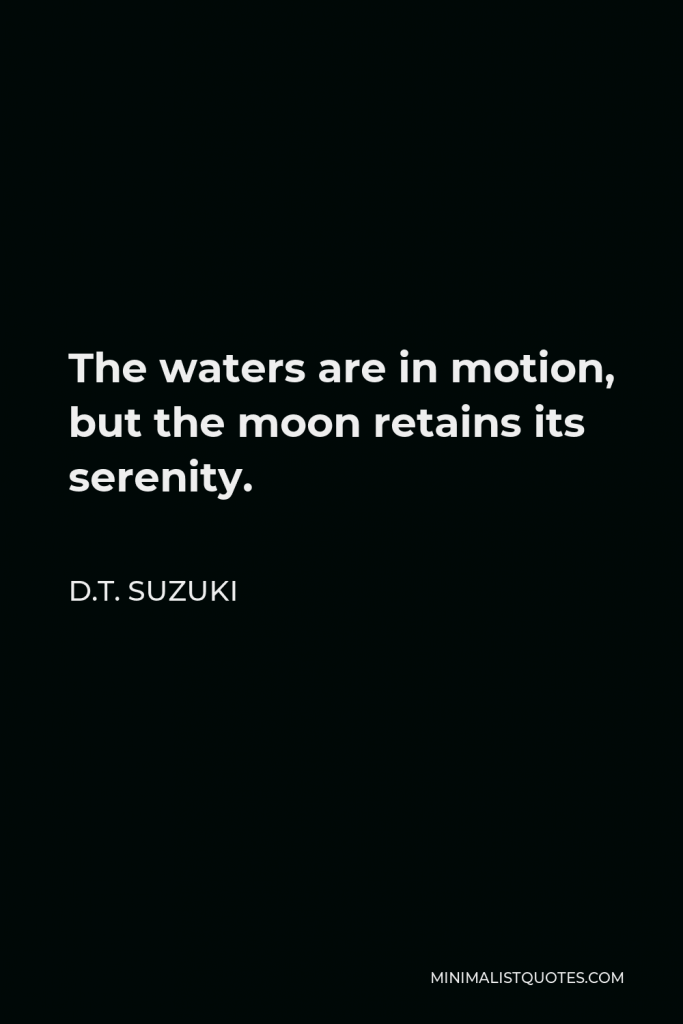

The waters are in motion, but the moon retains its serenity.
D.T. SUZUKI -





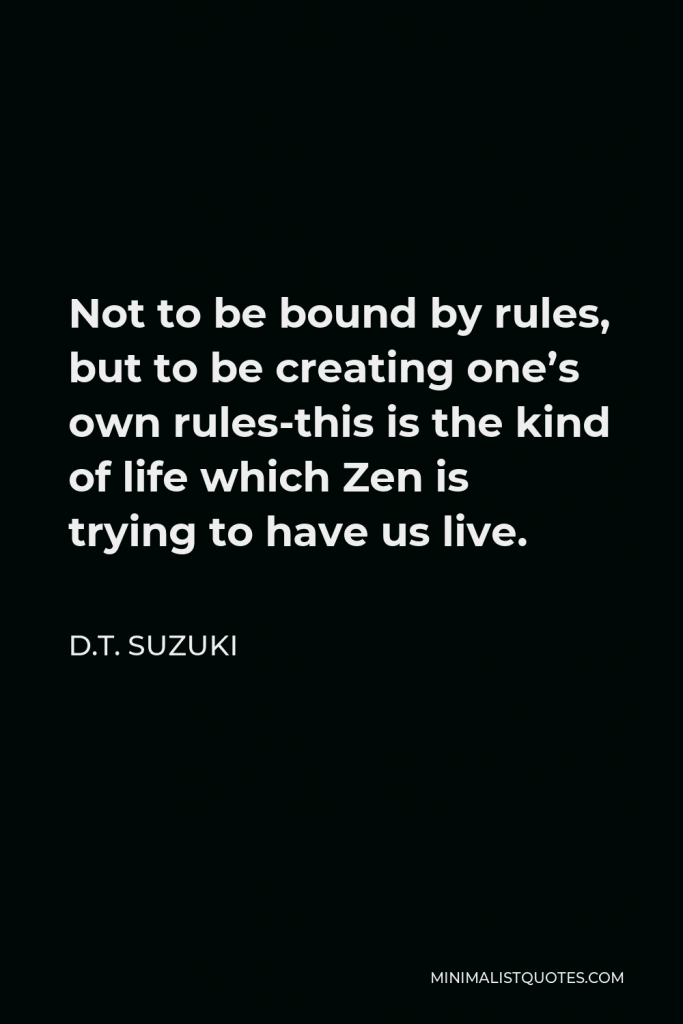

Not to be bound by rules, but to be creating one’s own rules-this is the kind of life which Zen is trying to have us live.
D.T. SUZUKI -





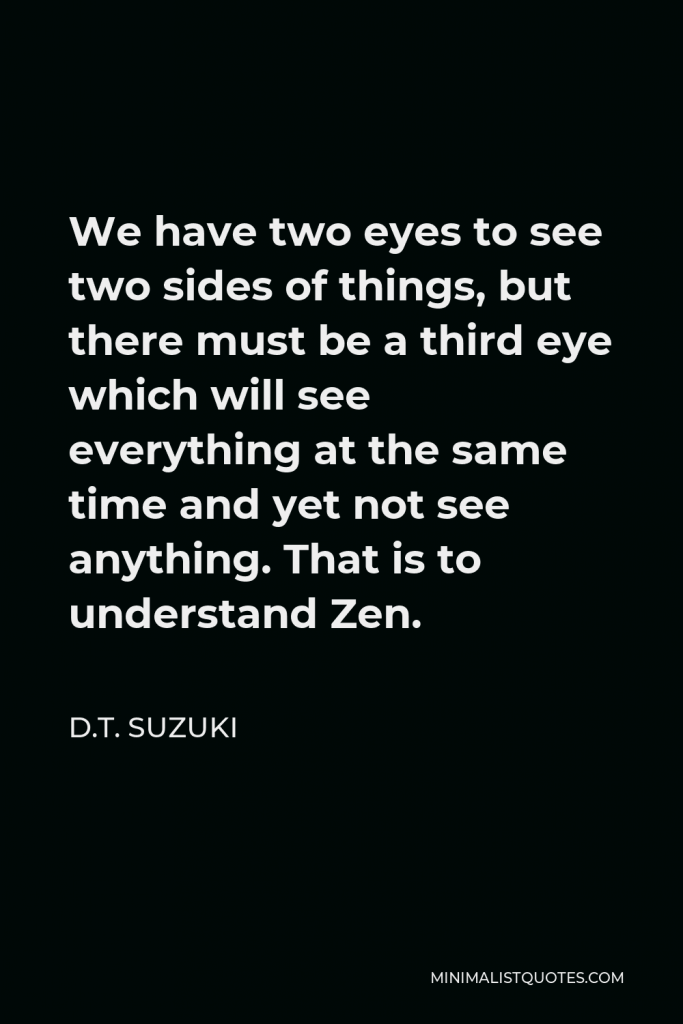

We have two eyes to see two sides of things, but there must be a third eye which will see everything at the same time and yet not see anything. That is to understand Zen.
D.T. SUZUKI
